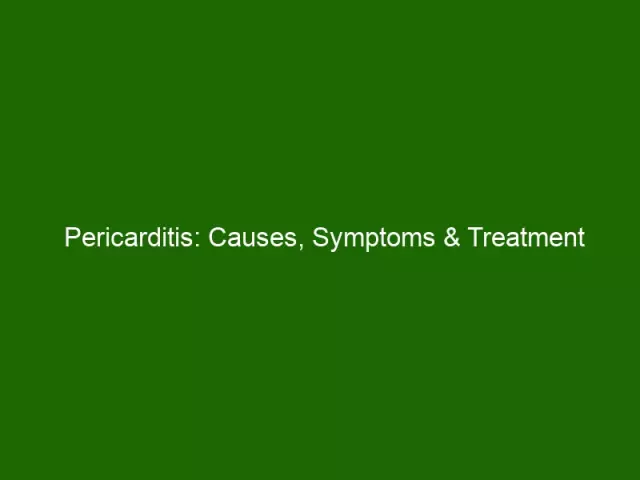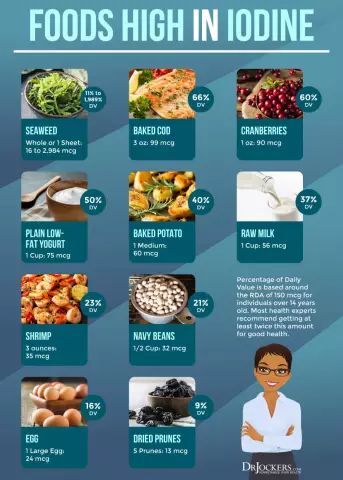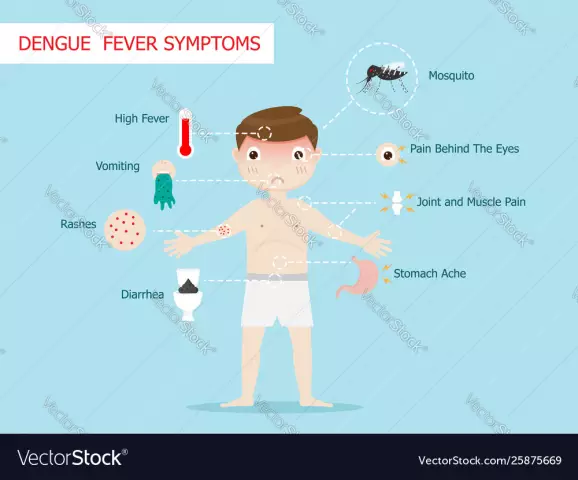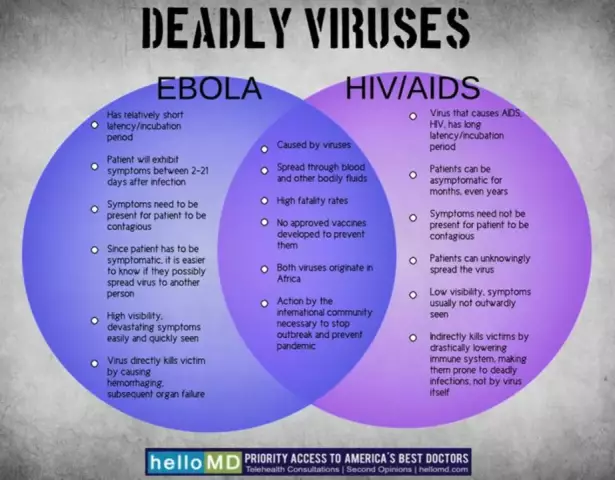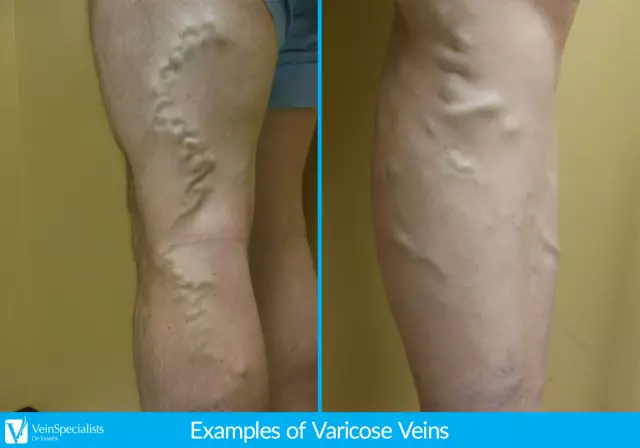- Author Rachel Wainwright wainwright@abchealthonline.com.
- Public 2023-12-15 07:39.
- Last modified 2025-11-02 20:14.
Pericarditis
Brief description of the disease

Pericarditis is an inflammation of the pericardium. There are acute and chronic pericarditis, as well as dry and exudative pericarditis.
Dry acute pericarditis is an independent disease, the course of which is benign and ends in one or two months and usually without complications.
Pericardial effusion most often occurs in the subacute and chronic stages, accompanied by the accumulation of fluid in the pericardial cavity.
Causes of the disease
Pericarditis occurs due to infections caused by bacteria, tuberculous mycobacteria, rickettsia, fungi, viruses, protozoa, due to rheumatoid arthritis, rheumatism, heart attack, trauma (including radiation, postoperative), tumors, uremia, systemic lupus erythematosus, due to a lack of vitamins C, B1.
According to statistics, most often the disease occurs against the background of autoimmune diseases, allergies.
Pericarditis symptoms
Symptoms of pericarditis depend on the stage of the disease, the nature of the fluid contained in the pericardium, its amount, and the rate of its accumulation.
In the acute form of the disease, the patient complains of pain in the heart, which is felt more near the apex of the heart or at the bottom of the sternum. Pain can be given to the left arm, neck, left shoulder blade, epigastric region, by nature they are aching, dull and strong. These symptoms of pericarditis resemble the clinical picture of a heart attack or pleurisy, the patient complains of heaviness, discomfort in the heart. Such heart pains are the main symptom of dry pericarditis.
When exudate (fluid) appears, its rapid accumulation in the pericardium causes shortness of breath. Dyspnea is especially aggravated when the patient takes a horizontal position and is accompanied by a dry cough. If the phrenic nerve is irritated, vomiting is added to the indicated symptoms of pericarditis.
Pericardial effusion is accompanied by a decrease, often disappearance of the apical impulse of the heart - this is caused by a large amount of fluid in the pericardium. There is a predisposition to an increase in absolute cardiac dullness (the area of the chest where, by tapping (percussion), the region of the heart is determined by a special sound). Swelling of the veins in the neck is noted.
With exudative pericarditis, the heart tops are sharply muted, sinus tachycardia develops. When an effusion occurs, a pericardial rubbing noise can be heard.
Diagnosis of the disease
Acute pericarditis is determined for a start by general symptoms: low-grade fever, leukocytosis with a shift to the left, increased ESR. An x-ray is performed, which detects effusion, and an EKG is done.
Pericarditis treatment

Treatment of pericarditis in the acute stage is started with intravenous injection of 2 ml of analgin solution 50% or 2 ml of 2% promedol solution (under the skin or intravenously), or 1-2 ml of 2% pantopon solution. The patient is also prescribed to inhale a mixture of oxygen and nitrogen. A good result in the treatment of pericarditis is given by anti-inflammatory drugs - salicylates, corticosteroids, etc.
Sometimes, at the stage of first aid, the patient may need to perform a puncture of the pericardium and remove 150-200 ml of fluid. If there was pus in the cavity, the patient must be given penicillin.
Treatment of pericarditis with cardiac glycosides is considered ineffective in this case.
Prevention of the disease
Prevention of pericarditis is the prevention of diseases that can provoke it: rheumatism, pneumonia, heart attack, tuberculosis, rheumatoid arthritis, histoplasmosis, amebiasis, lung or breast cancer, scleroderma, melanoma, sarcoidosis, lymphoma, amyloidosis, leukemia, coccidioidosis. If these diseases do arise, you should take care of their timely and adequate treatment.
YouTube video related to the article:
The information is generalized and provided for informational purposes only. At the first sign of illness, see your doctor. Self-medication is hazardous to health!

